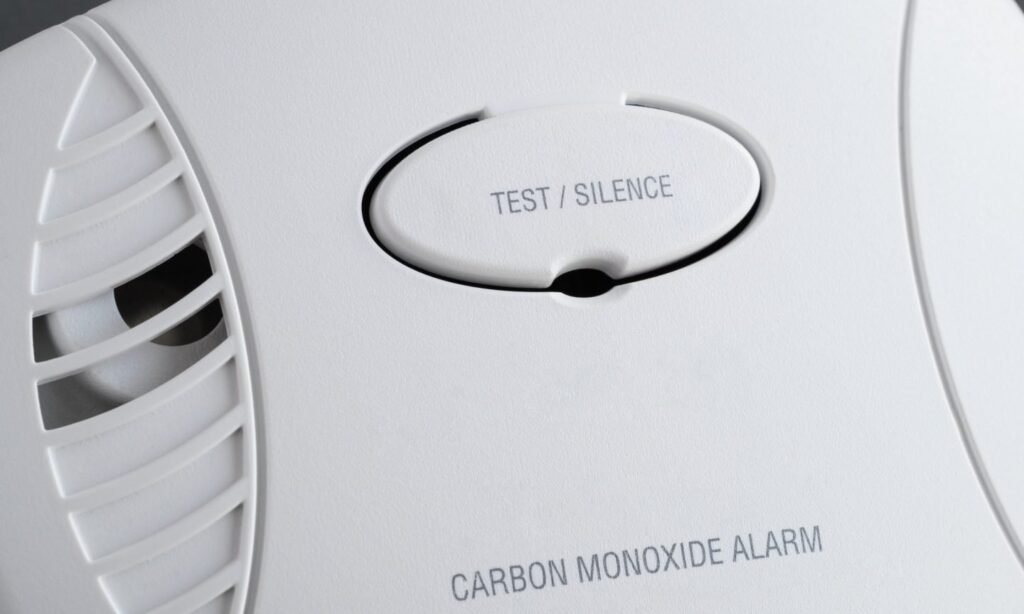If your carbon monoxide alarm is going off continuously with
four short beeps at a time,
assume it’s detecting carbon monoxide. Do not ignore the alarm. All people and animals should leave the area and find fresh air. Call 911 to report that the carbon monoxide alarm is going off. It’s better to be safe than sorry, especially since CO isn’t visible like smoke is.
How does a carbon monoxide detector work?
Carbon monoxide detectors alert you if they detect carbon monoxide (CO), which is a colorless, odorless gas produced by fuel-burning devices. The detectors typically look like smoke alarms and emit a high-pitched siren alarm when they sense the gas. Carbon monoxide can be deadly when inhaled.
🤓
Nerdy Tip
Some home security systems come with carbon monoxide and/or smoke alarm listeners that connect to a smart home app and send you phone notifications if your detector goes off.
What to do if your carbon monoxide alarm keeps going off
1. Check for symptoms of carbon monoxide poisoning
If your CO alarm is continuously going off with a high-pitched sound or making four short beeps at a time with a few seconds in between, that means it’s detecting carbon monoxide in the air and it’s an emergency alert. Check for symptoms of carbon monoxide poisoning.
The symptoms of carbon monoxide exposure appear like flu symptoms: headaches, nausea, dizziness, difficulty breathing, chest pain, confusion and vomiting
. If you hear the emergency alert and if anyone in your household is experiencing these symptoms, leave your home immediately and call 911. If you have pets, take them with you, as animals can also experience CO poisoning
.
2. Change the batteries
Carbon monoxide detectors often
chirp or beep once every minute
when the device’s batteries need to be replaced. Your alarm may also have LED lights that indicate the battery level.
Carbon monoxide is a dangerous gas that can be generated by various common sources in a household, including gas and oil-burning furnaces, clothing washers and dryers, power tools like chainsaws and power washers, and cigarettes smoked indoors with inadequate ventilation. It is crucial to never use gas-powered generators or grills indoors, avoid using a gas oven to heat your home, and never leave a running car in an attached garage, as these actions can lead to deadly levels of carbon monoxide.
According to the Environmental Protection Agency (EPA), it is recommended to have a carbon monoxide detector on every floor of your home and near sleeping areas to ensure early detection of this silent killer. Even if you live in a state where CO detectors are not required by law, the U.S. Consumer Product Safety Commission (CPSC) suggests having one in every home due to the invisible nature of carbon monoxide. The Centers for Disease Control and Prevention (CDC) reports that over 100,000 people visit the emergency room annually due to accidental carbon monoxide poisoning, highlighting the importance of having a detector in place for safety. following sentence:
She was very happy to receive the award.
Receiving the award brought her a great deal of joy.

